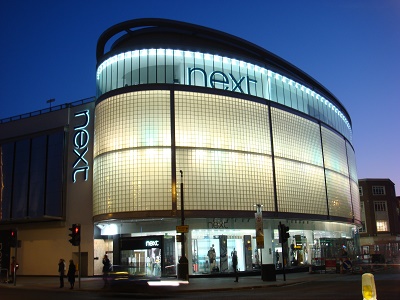To tell the truth, I have said it. Many times. It’s a boring field in which to work, and it’s generally considered one of the most boring of investment sectors. It doesn’t have the pizzazz of technology nor the energizing risk of mining or oil exploration. It doesn’t even come close the the fever pitch provided by the scandals from the banking sector. Retail is just “same-o, same-o.” That is, until now. As of today we are entering the Next Generation of retail as high-street clothier Marks & Spencer (LSE:MKS) has bowed the knee to competitor Next (LSE:NXT). Next’ share price is up 1.52%, 100.00 pence, to 6,680 following the release of its year end results.

Next returned a 5.4% increase in revenue for the year, boosted by a 12.4% expansion of online and out-of-store revenues, a direct result of the company’s foresight and understanding of the cultural changes that are taking place, allowing them to stay with the curve rather than chasing after it. On this date in 2013, Next share price was 4,147.00. Now that puts some excitement in retail! That is a 61% increase in share value over the past 12 months. Whilst that has got shareholders excited, it also means that Next market valuation is £10 billion. Alas, Marks & Spencer is, by comparison, a meager £7.5 billion.
Marks & Spencer, by the way, is down 1.08% on the day, a 5.10 pence decline to 467.50. In all fairness, M&S was 392.40 on 20 March 2013, so its shares have experienced a 19% growth on the year. That’s still much better than you’ll get from putting your money in the bank. Plus, it’s much less likely that a retailer will defraud you.
Lets see, we mentioned revenues and we cited market cap and share prices. If this were an amusement park, we’d all be looking for the next exciting ride. Oh, look! There it is! Profits! The £695 million profit generated by Next is an 11.8% increase over the previous year! What a ride! I’ll bet that the people who got on the M&S ride are disappointed by the news that height of their ride is expected to top out at £615 million. M&S full year results are expected in May.
Chairman John Barton cited several factors that helped drive Next to new heights, including
- Not trying to make the Christmas season merrier by discounting prices
- Its buyers being “braver in buying into new trends”
- An emphasis on getting the point of sale closer to the customer through the right mixture of brick and clicks
I especially want to laud Next for not succumbing to the holiday discounting mentality. Personally, I have always been a thorn in the side of sales-oriented people who think that you can make more more by selling at a lower price. The discounting mentality cheapens the perception of the goods and increases the burden of achieving the same goal. This is Discounting 101.
- If I normally sell a dress with a cost of £50 at £100, and I sell 100 dresses,
- my revenue is £10,000
- my gross profit is £5,000
- If I discount the same dress by 20%,
- I have to sell 25% more (125) just to bring in the same £10,000
- I have to sell 66% more (166) just to achieve the same £5,000 profit
That ought to debunk discounting for the purpose of increasing sales and/or profits. But I digress.
I am making no suggestion about where to invest, but I would like to use this opportunity to apologize for saying that retail is boring. And I would also advise potential investors to understand basic mathematics and the retailer’s strategy before investing. In the meantime, welcome to the Next Generation.


 Hot Features
Hot Features













